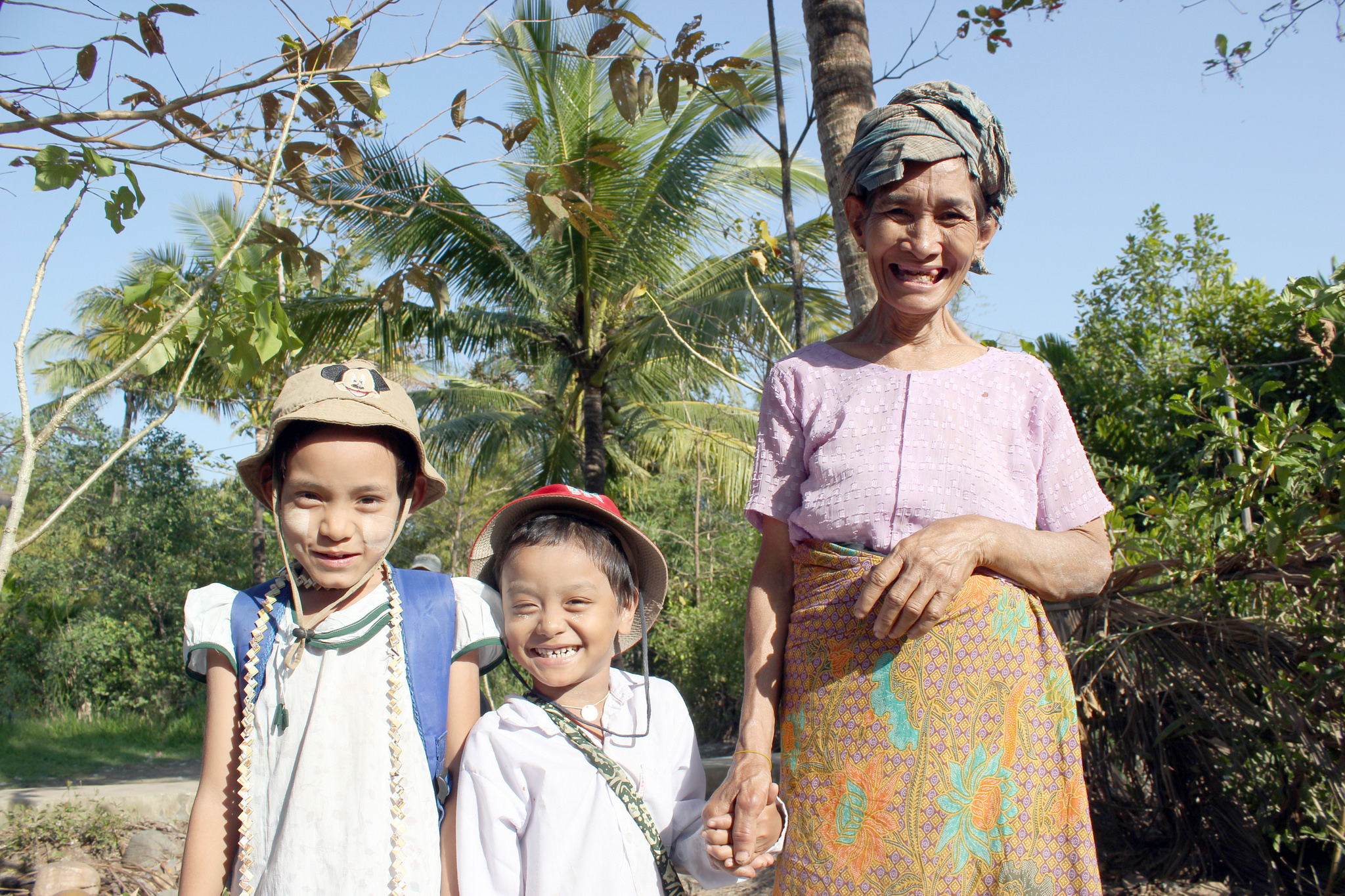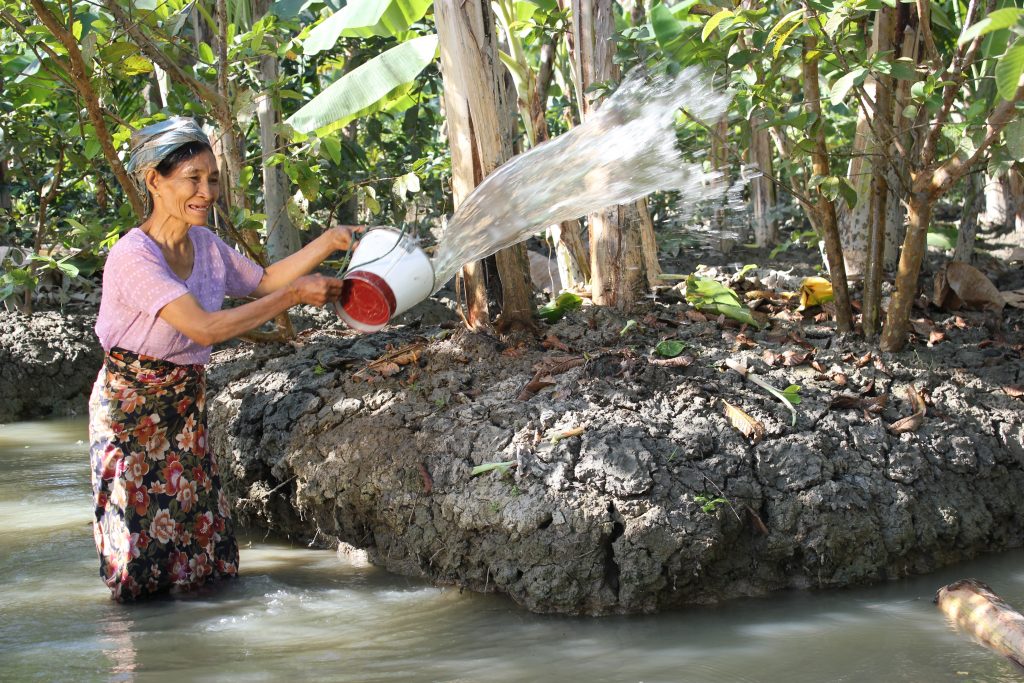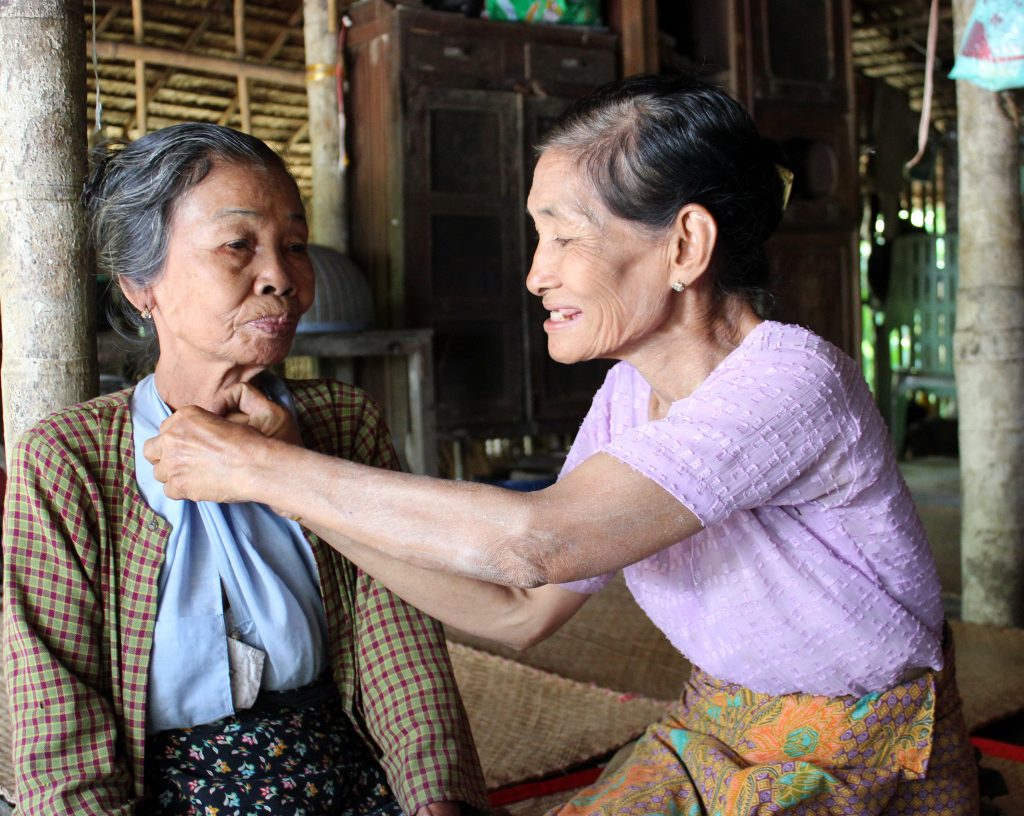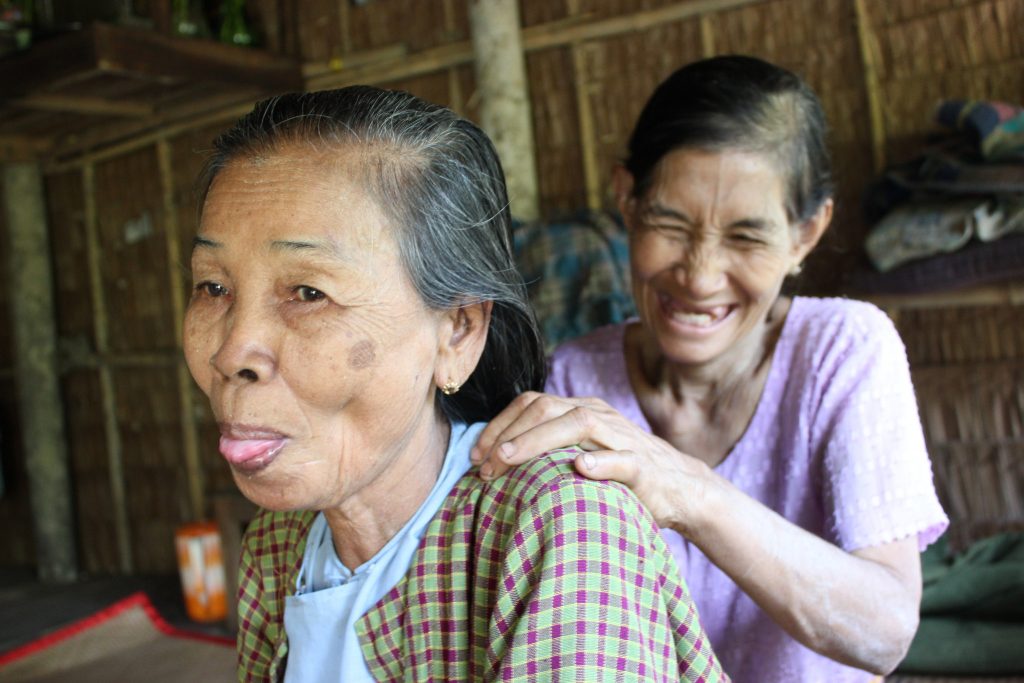
As famous women speak out against discrimination, we must make sure that we are listening, not only to those with a platform and a voice, but also to those who are vulnerable and marginalised. Which is why I am excited to announce a new piece of research into older women and unpaid care, which Age International is carrying out with the Overseas Development Institute (ODI).
Over the past few months, celebrities have been calling for women’s work to be valued equally. The sentiment of #TIMESUP reaches far beyond the entertainment industry but, unfortunately, not everyone has a voice in the fight for global gender equality. It is often the most vulnerable who find themselves forgotten: older women, women of colour, and women who live in poverty.
Far away from the celebrity red carpets, 61-year-old Daw San lives in Myanmar and gets up at 5am every day to make a packed lunch for her 5-year-old granddaughter to take to school. It is an act of love, but also an act of necessity – Daw San is the only carer for her granddaughter.
As well as cooking, cleaning, and growing food for them to eat, Daw San also visits a neighbour 10 years her senior to give her free therapeutic massages and tend to her bedbound husband.
Older women get little recognition for their work

To grow food, Daw San digs, waters, weeds and fertilises 2 acres of land
The work that women do globally day-after-day often goes unrecognised – and is less valued – whether it is paid or unpaid.
But the intersection of gender inequality and ageism means that older women, like Daw San, are even less likely to receive recognition for the immense amount of support they provide to their households and communities – from feeding their families to caring for their neighbours.
Instead, society often sees older women as a ‘burden’ and a ‘problem’ – completely discounting the many ways that older women prop up families and villages.
This invisibility of older women’s work means that they are not getting the things that they need – from finance and loans, to healthcare and social protection.
Our research will focus specifically on unpaid care and older women

Daw San helps her neighbour
Unpaid care means cooking, cleaning and caring for others – from the everyday household tasks that we do, like making dinner for the family, to regularly turning a bedbound patient so they don’t get sores.
Caring for others is so firmly regarded as ‘women’s work’ in most cultures that women of all ages see it as their duty to step in when care is needed, often at the expense of their own leisure time and financial independence.
Around the world, millions of people – mostly women – provide unpaid care for young children, older children, sick adults, spouses, or even others in their community.
When there are no publicly funded services providing childcare or long-term care, women of all ages tend to be the ones who pick up the shortfall.
Although we all know countless stories of older women juggling different kinds of work, the lack of research on older carers and the exclusion of older people from data means that their work is not being recognised or valued.
It’s time to make older women visible in the data

Daw San gives a therapeutic massage to her neighbor
The research Age International has commissioned with the Overseas Development Institute (ODI) will help us to understand what is happening on a larger scale and in a broader range of countries and contexts – and to see how older women contribute to their households and communities.
The research includes:
- analysing data from a broad range of countries
- a literature review of existing research and policies
- focus groups in Ethiopia with different generations
- interviews with older people in Ethiopia
It will enable us to see older women as three-dimensional human beings and understand better what they are doing day to day, the challenges they face and how they feel about it.
The findings will help us to develop better policies to support these women and to encourage state and other non-governmental actors to do more to help.
To ‘press for progress’ means progress for all ages
International Women’s Day 2018 asks us to ‘Press for Progress’ on equality. In the current climate, where women are starting to speak out more boldly, we must pay attention to the inequality faced by women of all ages, including older women.

Thank you so very much ?